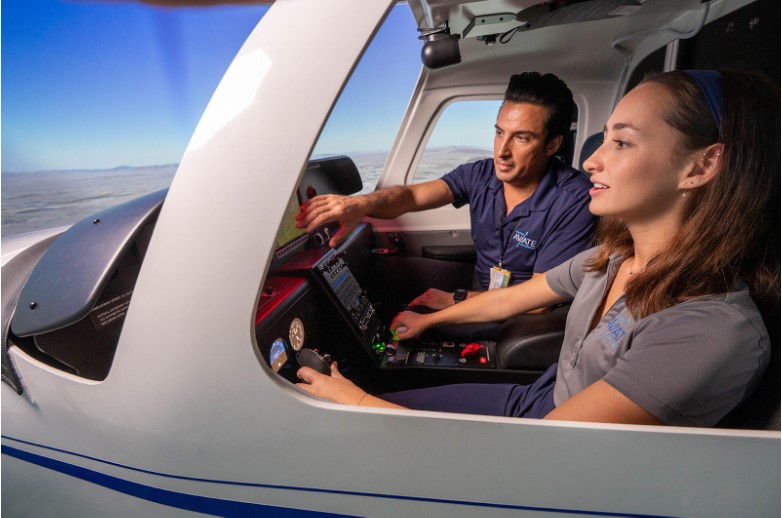Choosing a career in aviation is an exciting and rewarding decision. Whether you dream of becoming a commercial airline pilot, a flight instructor, or working in another aviation role, the path begins with proper flight training. This training is essential to equip aspiring pilots with the knowledge, skills, and experience needed to succeed in the demanding world of aviation.
Understanding the Importance of Flight Training
Flight training is the foundation of any aviation career. It is more than just learning how to fly an airplane. Flight training teaches you everything from the basics of aircraft operation to advanced navigation and safety procedures. This training ensures that you can confidently and safely operate an aircraft, while also preparing you to handle unexpected situations.
Through flight training, you develop the discipline and focus required in aviation. Flying an aircraft demands sharp decision-making, clear communication, and excellent problem-solving skills. Flight training helps build these qualities by placing you in realistic flying scenarios where you learn to respond calmly and correctly.
Building Technical Knowledge and Practical Skills
Flight training combines classroom instruction with hands-on flying experience. In the classroom, you study important subjects such as aerodynamics, meteorology, aircraft systems, and air traffic control rules. This technical knowledge helps you understand how an aircraft flies and how to navigate safely through different weather conditions and airspaces.
The practical part of flight training takes place in the cockpit. Under the guidance of an experienced flight instructor, you learn how to control the aircraft, perform takeoffs and landings, and execute various maneuvers. This step-by-step process allows you to gradually gain confidence and develop muscle memory for flying.
The combination of theory and practice is essential. Knowing the theory without flying skills would not prepare you adequately, and flying without understanding the science and rules could be dangerous. Flight training ensures you have both.
Gaining Experience Through Flight Hours
One of the most important aspects of flight training is accumulating flight hours. The aviation industry requires pilots to have a minimum number of flight hours before they can qualify for various licenses and jobs. These hours demonstrate your experience and ability to handle an aircraft safely.
Flight training programs include solo flights where you fly alone to prove you can operate the aircraft independently. You also complete cross-country flights to learn navigation over longer distances. Night flying and instrument training are other crucial components that prepare you for different flying conditions.
As you build flight hours, you also learn how to manage fuel, communicate with air traffic controllers, and monitor the aircraft’s instruments. These experiences make you a well-rounded pilot ready to face real-world aviation challenges.
Developing Safety Awareness and Responsibility
Safety is the top priority in aviation. Flight training instills a strong sense of responsibility for yourself, your passengers, and others in the sky. You learn strict safety protocols and emergency procedures that must be followed at all times.
During training, you practice emergency drills such as engine failure, bad weather, and system malfunctions. These exercises prepare you to stay calm and act quickly if a real emergency occurs. Flight training teaches you to anticipate problems and make decisions that prioritize safety above all else.
This focus on safety builds trust between pilots, airlines, and passengers. It is a critical reason why flight training is so important in shaping professional and dependable pilots.
Preparing for Licensing and Certification
Another key goal of flight training is to prepare you for obtaining your pilot licenses and certifications. Depending on your career goals, you may need a private pilot license, commercial pilot license, or an airline transport pilot certificate.
Flight training programs are designed to meet the standards set by aviation authorities. They help you pass written exams, oral tests, and practical flight checks required for certification. Successfully earning these licenses validates your skills and knowledge, opening doors to various aviation career opportunities.
Building Confidence for a Successful Aviation Career
Beyond technical skills and certifications, flight training builds your confidence as a pilot. Confidence is essential because flying can sometimes involve stressful or challenging situations. The more training and experience you have, the more prepared and self-assured you become.
Flight training also introduces you to the aviation community, including instructors, fellow students, and industry professionals. Networking in this community can help you find job opportunities and advance your career.
Conclusion
Flight training is the crucial first step toward a successful career in aviation. It provides the knowledge, skills, experience, and safety awareness needed to operate aircraft confidently and responsibly. Whether you aim to fly commercially or pursue other aviation roles, completing comprehensive flight training prepares you for the challenges and rewards of this exciting industry. With dedication and proper training, your dream of soaring in the skies can become a reality.

